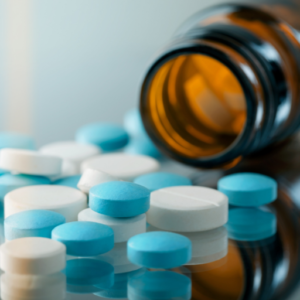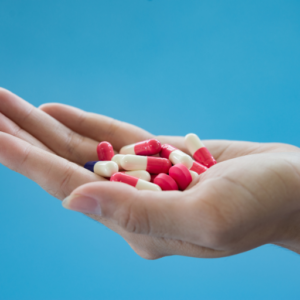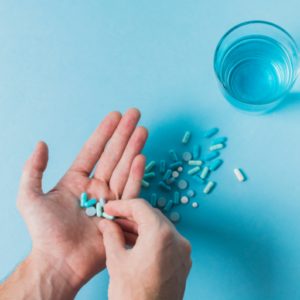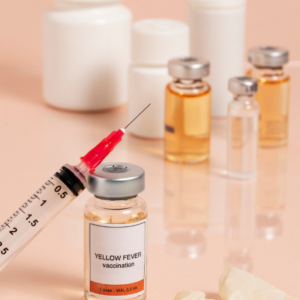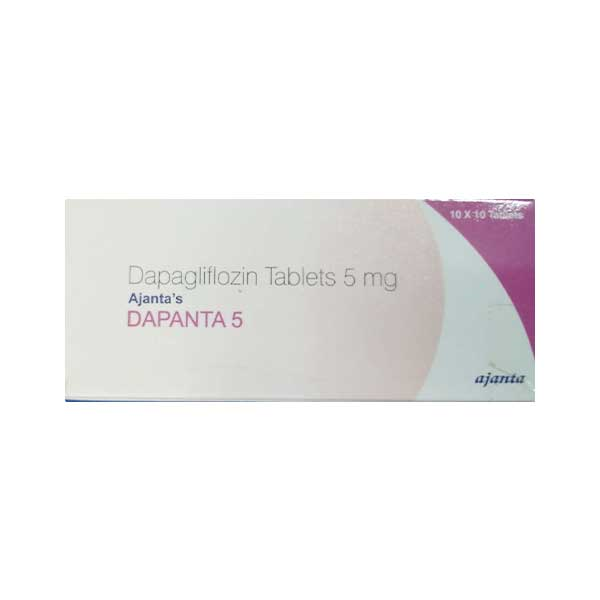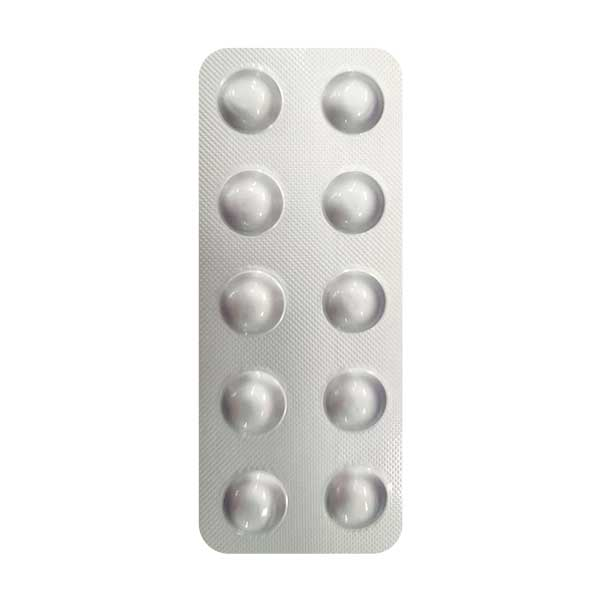DAPANTA 5mg
| Package | Per tablet | Savings | Price |
|---|---|---|---|
| 180 tablets | $0.31 | $16 | $72 $56 |
| 150 tablets | $0.32 | $12 | $60 $48 |
| 120 tablets | $0.33 | $9 | $48 $39 |
| 90 tablets | $0.34 | $5 | $36 $31 |
| 60 tablets | $0.37 | $2 | $24 $22 |
| 30 tablets | $0.40 | – | $12 |
What is this medicine?
DAPANTA 5 mg Tablet contains Pantoprazole, a proton pump inhibitor (PPI). This medicine is used to treat conditions caused by excess stomach acid, such as gastroesophageal reflux disease (GERD), erosive esophagitis, and stomach ulcers. It helps by reducing the amount of acid produced in the stomach.
What should I tell my health care provider before I take this medicine?
They need to know if you have any of these conditions:
-
Liver disease
-
Osteoporosis or risk of bone fractures
-
Vitamin B12 deficiency
-
Low magnesium levels
-
Lupus or other autoimmune disorders
-
Any bleeding or gastrointestinal problems
-
An unusual or allergic reaction to pantoprazole, other PPIs, or any ingredients in this medicine
-
Pregnant or trying to get pregnant
-
Breastfeeding
How should I use this medicine?
Take this medicine by mouth, usually once daily, before meals, or as directed by your doctor. Swallow the tablet whole with a glass of water. Do not crush or chew the tablet.
Do not take your medicine more often than directed. Do not stop taking this medicine without your doctor’s advice, even if you feel better.
Overdosage: If you think you have taken too much of this medicine, contact a poison control center or emergency room at once.
What if I miss a dose?
If you miss a dose, take it as soon as you remember. If it is nearly time for your next dose, skip the missed dose. Do not take double or extra doses.
What may interact with this medicine?
-
Warfarin or other blood thinners
-
Methotrexate
-
HIV medications like atazanavir or rilpivirine
-
Iron supplements
-
Ketoconazole, itraconazole, or other antifungals
-
Clopidogrel
-
Herbal supplements like St. John’s wort
This list may not describe all possible interactions. Tell your doctor or pharmacist about all the medicines, supplements, and herbs you use. Also inform them if you smoke, drink alcohol, or use illegal drugs, as these may affect how your medicine works.
What should I watch for while using this medicine?
-
Continue taking the medicine even if you feel better. Stopping too early may cause symptoms to return.
-
Notify your doctor if your symptoms do not improve or worsen.
-
Long-term use may lead to low magnesium, vitamin B12 deficiency, or increased risk of bone fractures—your doctor may monitor you for these.
-
Report symptoms such as muscle cramps, seizures, irregular heartbeat, or persistent diarrhea, especially if watery or bloody.
-
Inform your healthcare provider if you develop new or unusual symptoms, such as weight loss, difficulty swallowing, or persistent abdominal pain.
What side effects may I notice from this medicine?
Side effects that you should report to your doctor as soon as possible:
-
Allergic reactions like rash, itching, or swelling (face, tongue, throat)
-
Severe abdominal pain
-
Persistent diarrhea, especially if watery or with blood
-
Muscle cramps, seizures, or abnormal heartbeat (possible signs of low magnesium)
-
Signs of liver problems (yellowing of skin or eyes, dark urine)
Side effects that usually do not require medical attention (report if persistent or bothersome):
-
Headache
-
Nausea or vomiting
-
Gas or bloating
-
Diarrhea or constipation
-
Dizziness or joint pain
This list may not include all possible side effects.
Where should I keep my medicine?
-
Keep out of reach of children.
-
Store at room temperature between 20–25°C (68–77°F).
-
Protect from moisture and light.
-
Do not store in the bathroom.
-
Discard any unused medicine after the expiration date.




